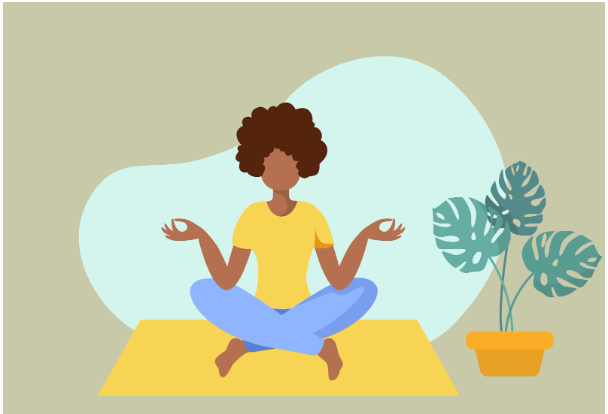Let’s tell you how to cope with life after stressful moments.If you’ve recently had an emotional upheaval and don’t know how to get your life back on track, read this article.
How to get back to life after long-term stress
All of us have experienced stress at least once in our lives. It’s the feeling that we no longer have the strength and energy to deal with the problems that weigh us with an eternal weight. So the only thing left to do is to worry, reflect, and worry again.
Such states need to be appropriately experienced. For example, immediately playing games called तीन पत्ती ऑनलाइन is not the answer. You have to distract yourself the right way.

Why stress is dangerous
Even after the first bout of stress passes, the experience affects our thoughts, feelings, and actions visibly. Why this happens is explained by the hypothesis of a perseverative thinking-the tendency to linger on specific thoughts for long periods. Prolonged experiences intensify the body’s initial short-term response to stress and trigger the process repeatedly, even when the source of the discomfort is no longer present.
Psychologists have shown that thinking about what might go wrong in the future or what has already gone wrong in the past also affects our healthy habits. As a result, we sleep and eat worse, and some may even start abusing illegal substances.
What are some strategies to help get rid of stress
To beat stress, you need to get rid of worrying and thinking. It can be done in two ways – “turning off” the body’s natural response to stress or avoiding unhealthy habits.We decided to look deeper into this issue and looked closely at studies that looked comprehensively at the process of inner feelings and their impact on healthy habits. Out of 10,500 papers, we selected 36 relevant ones. They focus on a variety of methods, which can be roughly divided into seven broad categories:
- Active Planning. It refers to setting aside a specific period for experiences.
- Stress management. These therapies reduce the level of experience, for example, by shifting the focus of attention to manageable aspects of life.
- Rest and mindfulness – focusing on the present moment.
- Psychological “detachment.” These practices help you switch from the source of stress to other subjects or activities.
- Cognitive behavioral therapy and acceptance and responsibility therapy. It is working on negative and unhelpful thoughts and finding strategies for dealing with stress on your own.
- Expressive writing – honestly writing down your thoughts and feelings.
- Managing Inner Pain. This category includes ways to help dampen the experience.
These techniques helped research participants cope with negative thoughts and stress and positively influenced their healthy habits. It proves that learning to worry a lot less and even turning stress management into rituals that support health is possible.
Operational planning and psychological “detachment” tactics have shown the best results in activating healthy habits. Therefore, we can conclude that when dealing with stress, it is essential to switch instantly and put worries on hold by scheduling an appropriate time.
How to use methods of coping with stress
If you’ve spent the last few days stressed and are worried about what effect this will have on your health, three basic techniques can help you.
Our experience has shown that these techniques reduce anxiety levels and effectively combat stress. But, let’s face it: this is not a miracle pill that will make all your worries disappear like magic. Each technique works differently from person to person. So, be patient and get ready for some serious work – only regular effort will make the stress recede.
Planning
Create a detailed and easy-to-follow schedule for the experience. For example, you will indulge in sadness from 8:30 to 9 p.m. It will help you stay afloat if things get terrible.
You can also try some practical approaches to planning.
Reduce your time worrying.
Give yourself a limited time each day to “drain” your stress. It can be three “approaches” of 10 minutes or an hour in the evening. The clearer you write out the time frame, the better. So you will be able to restrain negativity during the day and reduce the total time of reflection and excitement.
It is best to plan such “approaches” for the evening, but a few hours before sleep.
Write down your fears.
Write down your fears if you’re having difficulty holding out all day for the time allotted for worrying. Once you see all your worries on paper or in notes on your phone, you’ll know the problem is not as severe as it seems.
Acceptance and control
Setting ambitious goals and striving for more is certainly a good thing. But it’s also important to accept that you can’t always be perfect and perform flawlessly. In addition, you need to understand that your experiences are beyond your control. It can be done in several ways.
Make a list of problems.
It works about the same as a list of fears. Only this time, you must write down the problems life has thrown you. Then, when you see them all right in front of you, it will be easier for you to understand which ones are worth tackling in the first place, which ones you can handle in principle, and which ones are beyond your control. It will help you to go from passive experiences to active actions.
Accept the inevitable
Accept that you and your life will not always be perfect. Open up to all emotions, even the not-so-pleasant ones, and learn not to overreact when things don’t go according to plan.
In moments when you find it hard to deal with your feelings, focus on the here and now. You can try to apply the concept of mindfulness – cultivate within yourself the absolute acceptance of your personality and the events of your life.
Get rid of the habit of worrying
Most often, worry is an old habit. But it can be replaced by other, more effective techniques. For example, invent your mantra to repeat when you worry when you play indian casino games. It can be as simple as, “We’ll deal with this later,” or as inspirational as, “All things pass, and this will give. What’s important is that the mantra works and is meaningful to you.
Rest
Working without breaks and days off can lead to serious mental health problems, such as burnout or constant fatigue. That’s why you need to be able to switch and rest, and you can do this in the following ways.
Get away from your problems
If you are worried about your studies, work, or family problems, additional concentration on them will only make your condition worse. Instead, try to switch and distract yourself – listen to music or the latest issue of your favorite podcast, read a book chapter, flip through a magazine. It will allow you to calm down and return to business with a new head.
Listen to your feelings.
Special techniques from well-known meditation to simple breathing exercises can help. The next time you feel the excitement coming over you, close your eyes and focus on your breathing. Inhale. Breathe out. Inhale. Breathe out. After a couple of minutes, ask yourself how you feel. Chances are, you’ll notice that it has improved.You can also try wiggling your toes a few times quickly. Again, the bodily sensations will allow you to come to your senses.

Be active
Being active makes us more energetic and improves our mood. And for stress, nothing is more destructive than your genuine smile and positivity.You don’t have to spend all day on your feet. Instead, choose an active habit that appeals to you. For example, running in the morning, taking evening walks, or riding a bicycle.
Stress and worries are not enemies – in small amounts, they can even be good for you because it is a natural human defensive reaction. But if they have become your constant companions, something must be done about it.The techniques described above help you to control stress, cope with it, and emerge victorious from this battle. Moreover, they open up a new life – a fun, interesting, and worry-free one.
